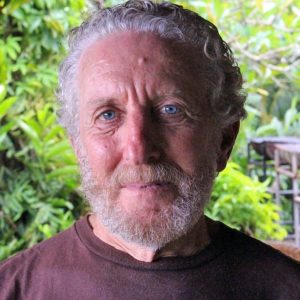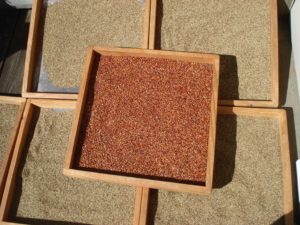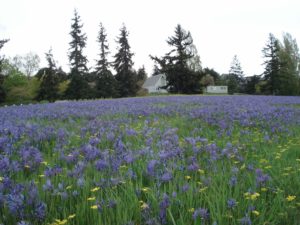153: Forest Shomer on Seeds
Growing, collecting and selling seeds to ensure genetic diversity.

Forest started urban farming in 1969 in Berkeley, California. Through the People’s Park Movement, he was launched into gardening and got the basic training and motivation for becoming a seedman.
He has been a full time, independent, professions seed provider since 1972 and has owned, led, or helped launch at least four seed companies, and founded the nonprofit Abundant Life Seed Foundation which produced and distributed up to 600 types of open-pollinated vegetable, herb and flower seeds
Since 1974 Forest has been giving workshops on seed saving and the importance of genetic diversity, and was the keynote speaker for the 2012 Northwest Permaculture Convergence and, also the Regenerations Seed and Plant Exchange in Hawaii.
Forest had a radio show for a couple of years with 30 minute interviews featuring a variety of people including many permaculturists
In This Podcast: Greg is enthralled by the story telling of Forest who brings us along on the adventures of a seedman. Forest felt the pull of his calling in the late 1960’s and has been actively gardening and harvesting seeds ever since. Moving through a few seed company projects over the years, he has also harvested skills, friends, experiences, and an appreciation for the importance of native seeds. With so much experienced focused on the tiny seeds that are essential to all gardeners and farmers, Forest’s story connects with everyone in one way or another. Listen in and harvest your own kernels to save.
Listen in and learn about:
- How he was impressed at a very young age by the thought of a city being a green space
- Going to school to be a city planner during the People’s Park Movement
- What the community did to their park without asking
- How he found his mentor Lucy Huff who taught him how to garden, can, cook and collect seeds
- How he got the idea to start a seed company
- What he used to package his seeds and why he used
- How he started gathering open pollenated and pure seeds
- The creation of his non-profit and the classes he taught
- Some of the other countries he has gone to and how he has helped them start their own seed saving groups

- How collecting seeds takes a little skill and knowledge
- What can happen when you plant beets and swiss chard next to each other and you collect seeds
- A few examples of some easy seeds to collect
- Some tricks to avoid cross pollination when you need it
- Helping other groups learn the skills to seed saving
- The difference between annuals and perennials and the importance of saving
- What “open pollenated” means, how this occurs and how long this has been happening
- What “hybrid” means and how this happens, and how this effects the plants
- The patenting that started in the 1980s and what that meant for seeds and plants
- How the Genetically Modified (GM) process started with plants
- How likely it is that an urban farmer might get GM seeds
- What he has been doing for the last twenty years and why he is focusing on wildflowers and native grasses
- Who some of his clients are and where his native seeds are being planted
- How the Abundant Life Seed Company got started
- Why the bio regional movement got started and what difference climate makes on the seeds

- What happened when he was ready for a store front to sell seeds
- Working with a friend with plans to start a seed farm on a rural area on the coast
- How he started the non-profit and some of the early challenges
- The membership organization of the Abundant Life with its network of members, stores in 25 states, catalogs and all the growers
- His next venture into native seeds with Inside Passage Seeds
As well as:
- How the 1992 catalog seemed to be his best and ultimate work, then his project and how he convinced the city government to plant wildflowers at the local airport
- How he feels the calling to save seeds and grow seeds has been his biggest success
- That he really wants to repair the earth and that is what drives him to do what he does
Forest’s Book recommendations:
Gary Snyder’s – Earth House Hold: Technical Notes & Queries to Fellow Dharma Revolutionaries
How to reach Forest:
*Disclosure:
Some of the links in our podcast show notes and blog posts are affiliate links and if you go through them to make a purchase, we will earn a nominal commission at no cost to you. We offer links to items recommended by our podcast guests and guest writers as a service to our audience and these items are not selected because of the commission we receive from your purchases. We know the decision is yours, and whether you decide to buy something is completely up to you.








